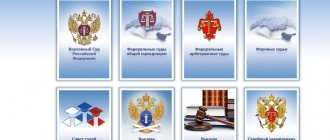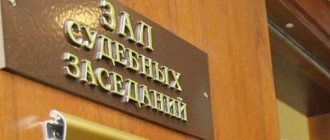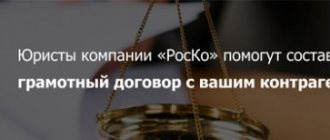MOSCOW, July 3. /TASS/. The new procedure for considering cassation cases in criminal cases is aimed at eliminating judicial errors that led to an unfair conviction. This follows from the explanations of the plenum of the Supreme Court of the Russian Federation, published in Rossiyskaya Gazeta.
The Plenum recalled that with the start of the work of new cassation courts (no later than October 1), continuous cassation will be introduced - each cassation appeal will be submitted for mandatory consideration by the court.
The cassation instance can cancel a court decision that has entered into force in a criminal case for incorrect application of the criminal law or significant violations of criminal procedural norms, if they “influenced the outcome of the criminal case, in particular, the conclusion of guilt, the legal assessment of the crime, or the appointment of punishment by the court.” or to a decision in a civil suit.”
At the same time, the cassation court is not bound only by the arguments of the complaints and has the right to check the criminal proceedings in full. “The court has the right to go beyond the arguments of the complaint both in relation to the person in respect of whom the question of reviewing the court decision is raised, and in relation to other convicts in the same criminal case in an audit procedure,” the plenum explained. But this is permissible only “in the direction of improving the situation of a convicted person, acquitted person, a person against whom the criminal case has been terminated, or another person against whom cassation proceedings are underway.”
Even if the applicant withdraws his complaint after it has been scheduled for hearing, the court has the right to disagree with such a request “if there are grounds for canceling or changing the court decision, entailing an improvement in the situation of the person in respect of whom cassation proceedings are being conducted in the case,” to continue the trial and check the legality of the court decision that has entered into force. The Supreme Court explained this by saying that “justice by its very nature can only be recognized as such if it meets the requirements of justice and provides effective restoration of rights, and an erroneous judicial decision cannot be considered a fair act of justice and must be corrected.”
Check by cassation
In particular, the plenum of the Supreme Court noted, in cassation the arguments about the inadmissibility of the evidence that formed the basis of the conviction and influenced the court's conclusions require verification.
Also, in cassation, complaints about the injustice of the sentence should be verified if the punishment does not correspond to the gravity of the crime, the personality of the convicted person, or an unfair punishment is imposed due to its excessive leniency or excessive severity due to the incorrect application of criminal law.
In cassation, not only the materials available in the criminal case can be considered, but also additional materials received with the complaint or presented by the parties, if they contain information that is important for the correct resolution of the case and do not indicate the presence of new or newly discovered circumstances. On their basis, the cassation instance can overturn the court decision and return the criminal case to the prosecutor or lower courts for a new trial. And if the reliability of the facts established by additional materials does not need to be verified by lower courts (documents indicating that the convicted person has not reached the age of criminal responsibility, the absence of a criminal record, the application of an amnesty act for a previous sentence, etc.), the cassation the court has the right to cancel decisions and terminate proceedings in the case.
At the same time, the review of the case based on newly discovered circumstances should take place in the usual manner.
Turn for the worse
A worsening of the defendant’s position (tougher punishment, reversal of a decision to terminate a criminal case or an acquittal, etc.) during a review of the case in cassation “may occur if during the previous trial there were violations that distort the very essence of justice and the meaning of the court decision as an act of justice ", emphasized the plenum. The basis for this must be serious violations of the law, for example, the classification of the act under the law as a less serious crime, an error in deciding the issue of confiscation of property.
Violations that distort the very essence of justice and the meaning of a judicial decision, the Supreme Court explained, may include the issuance of a decision by an illegal composition of the court or a verdict by an illegal composition of the jury, violation of the secrecy of deliberations of jurors or the secrecy of deliberations of judges when passing a verdict, the absence of the signature of one of the judges in the court decision, lack of minutes of the court hearing. They also include significant violations during the consideration of the case by the jury, which limited the right of the prosecutor, the victim or his legal representative to present evidence, which affected the content of the questions posed to the jury or the answers they gave and, in general, the verdict rendered, as well as if when the jury’s verdict was unclear and contradictory, the judge did not point this out to them and did not offer to return to the deliberation room to make clarifications on the question sheet.
In addition, violations that distort the essence of justice may include “other violations that deprived participants in criminal proceedings of the opportunity to exercise the rights guaranteed by law to a fair trial based on the principle of adversarial action and equality of the parties, or significantly limited these rights,” if this affected the legality the court decision made.
When considering complaints that lead to a worsening of the situation of the convicted person, the cassation instance should not go beyond the arguments of the cassation appeal of the victim or his representative, or the cassation presentation of the prosecutor.
In addition, you can file a complaint that allows for a turn for the worse only within a year after the court decision enters into force. If the applicant missed this deadline, it is not subject to reinstatement, regardless of the reasons for the omission.
Time limits for appealing a verdict to the Supreme Court
The current legislation of the Russian Federation establishes the following deadlines for challenging court decisions:
- For filing an appeal, a period of 10 days is provided from the moment the verdict or other court decision was issued, which provides for the possibility of appeal. If the convicted person is in custody, the countdown of this period begins from the day on which the person received the decision in question.
- For challenging a court decision by way of cassation or supervision, no exact deadline is established. The exception in this case is situations in which a review of a sentence or court decision is carried out by way of cassation or supervision, the grounds of which entailed aggravation of the situation of the convicted or acquitted person. In such conditions, the period for challenging is equal to one year from the moment the court decision enters into legal force if errors and inaccuracies were made during the proceedings, resulting in a violation of legislative norms and the concept of fairness of the verdict.
If the deadline for a dispute expires on weekends or holidays, it is recalculated and the last working day becomes the next working day.
If a complaint is filed with violation of certain details, the Court will grant an additional period to eliminate the identified violations. If there is no repeated complaint with corrected violations within a predetermined period or repeated violations, the proceedings are terminated and the complaint is not considered filed. Filing a complaint after the expiration of the established time period also entails refusal to accept the application for consideration. At the same time, the legislation of the Russian Federation provides for exceptions, within the framework of which the presence of valid reasons is the basis for a request to restore the missed period of appeal. In order to restore the missed deadline, the applicant must provide documents that confirm the right to do so. Such documents may be medical certificates and extracts, death certificates of close relatives, and so on. If the petition for restoration of the missed deadline is granted, then the complaint is considered filed on time.
An unappealed court decision comes into force after the expiration of the 10-day period. If the applicant has filed an appeal, the entry into force occurs after the final decision on the appeal is made.
Second cassation
After consideration of a complaint or presentation in the court of cassation, the participants in the trial (the convicted person, his lawyer, the victim or the prosecutor) have the right to file a new cassation complaint with the Supreme Court of Russia, but in the order of selective cassation (when the judge first considers the validity of the filed complaint).
The ban on filing repeated cassation complaints and submissions established in the Code of Criminal Procedure, the plenum explained, cannot be considered as a basis “preventing the identification and elimination of errors that indicate the unfairness of the court’s decision.” If repeated cassation complaints reveal grounds for canceling or changing the appealed decision, such complaints are subject to consideration, the plenum explained.
In selective cassation there are also rules related to improving the situation of the defendant - the judge may decide to transfer cassation complaints, presentations with a criminal case for consideration in a court session of the cassation court on grounds not specified in the complaint or presentation.
In case of refusal to transfer the complaint for consideration by selective cassation, the decision on refusal “must respond to the arguments of the complaint, presentation and indicate the reasons for the decision made.”
Assistance from a lawyer on appealing verdicts in the Supreme Court
A lawyer is a disinterested person, as a result of which the lawyer’s activities are carried out in conditions of strict observance of the interests of the client. The actual list of functions of a lawyer in appealing against sentences by appealing to the Supreme Court includes:
- A thorough study of the available procedural documents and the position of the potential applicant.
- Development of an individual appeal strategy with the search for important arguments to overturn the verdict.
- Collection of evidence confirming the need to re-examine the criminal case.
- Carrying out other necessary procedural actions in order to represent and protect the interests of the principal.
As practice shows, the participation of a qualified lawyer in the procedure for seeking assistance from the Supreme Court on issues related to appeals and sentences that do not correspond to the concepts of justice and legality is the key to a positive consideration of the application in the highest authority. Today, regulations and samples for drawing up various types of statements are freely available, but not a single template can guarantee a positive result, since each individual case is completely individual. Drawing up a complaint against a court verdict on your own entails the possibility of making errors and inaccuracies, which may lead to refusal to accept the complaint for consideration. MMKA lawyers have extensive practical experience and professional skills, thanks to which the risk of shortcomings is reduced to zero. You can be sure that when a lawyer draws up a complaint against a court verdict, the application will be absolutely legally competent, which will significantly increase the chances of it being accepted for consideration.
An additional argument in favor of contacting a competent lawyer in order to appeal a court verdict in the Supreme Court of the Russian Federation is the need for convincing motivation and compelling arguments when drawing up an application. The Supreme Court of the Russian Federation accepts for consideration only truly problematic cases, in which a reasoned text of the complaint with sufficient justification is the only condition for acceptance for consideration. In this case, the lawyer will be able to take on all the related tasks of challenging the court verdict at any stage and help represent the interests of his client, achieving their satisfaction.
Challenging a court verdict without professional legal assistance is almost impossible. This is due to both complex formalities and the specifics of the procedure itself. In addition, the court in some cases may make a decision unfavorable for the applicant, imposing a more severe punishment if serious mistakes are made. If you do not agree with the essence of the sentence and believe that a specific court sentence violates your rights in accordance with current legislation, cooperation with specialists from the Moscow Municipal Bar Association will be a rational decision. Our lawyers successfully appeal criminal verdicts by appealing to a higher court and guarantee an individual approach to each client to achieve the most favorable outcome of the case.
Division of cassation
The Supreme Court explained that, in the procedure of complete cassation, cassation courts can review the sentences of magistrates, district and garrison military courts, and appeal decisions of republican, regional, regional and equivalent courts. In the Supreme Court of Russia, by way of a complete cassation, sentences or other final court decisions made at first instance by republican, regional, regional and equivalent courts can be reviewed (including in cases where they were not the subject of review on appeal), as well as sentences passed by the new courts of appeal (they will become the second instance for the courts of the constituent entities of the Russian Federation and district military courts).
By way of selective cassation, cassation courts will be able to review interim judicial decisions of magistrates, district and regional courts, as well as interim decisions of appellate courts.
In turn, the Supreme Court, through the procedure of selective cassation (second cassation), will be able to review decisions that have been reviewed in new cassation courts.
Preserve the open-endedness of continuous cassation in criminal cases
Nikolay Zharov
Member of the Council of the FPA of the Russian Federation, President of the Administration of the Kostroma Region
August 3, 2021
The judicial system must “step on the throat of its own song”
The draft law developed by the Supreme Court of the Russian Federation on limiting the period for complete cassation in criminal cases was adopted by the State Duma in the first reading.
The reason that prompted the Supreme Court of the Russian Federation to “turn into reverse” lies on the surface: the new cassation courts of general jurisdiction are overwhelmed with cases.
The convicts now have another hope for a fair trial, and they want this hope to be justified. But the judges don’t have time, they don’t have time. Moreover, some of them, newly appointed judges of the new cassation courts, have already suddenly retired into honorable retirement, as evidenced by the press releases of the Supreme Court of Justice.
If we strive to remain objective, then it is hardly possible to see in itself the establishment of a period for a complete cassation in criminal cases as a violation of the right to access to justice.
For a long time, there was no continuous cassation in the criminal procedural law of Russia. And nothing. There was access to justice, the cassation courts worked (how they worked is another question).
The Constitutional Court of the Russian Federation has repeatedly indicated that the constitutional right to judicial protection does not imply the ability for a citizen to choose at his own discretion the method and procedure of judicial challenge - they are determined, based on the Constitution of the Russian Federation, by federal laws.
The legislator has now decided in the first reading that the open-endedness of the right to a complete cassation should be eliminated by setting a two-month period for filing a corresponding complaint.
The argument that two months is unlikely to be enough to prepare a good cassation appeal, in my opinion, is frivolous. The law sets aside 10 days for filing an appeal, although the subject of an appeal is broader than a cassation appeal: in addition to questions of law, appellate courts also decide questions of fact.
In addition, for a complete cassation, the institution of restoring the missed deadline for filing a complaint is retained. And in addition to this, the right to selective cassation remains unlimited.
In short, in the very legal structure proposed by the Supreme Court of the Russian Federation for the exercise of the right to cassation appeal of court decisions in criminal cases, from my point of view, one can hardly see a restriction of the very right to access to justice.
Nevertheless, I categorically do not support this bill. And that's why.
The Supreme Court of the Russian Federation in many of its initiatives proceeds from the fact that in general everything is fine with criminal justice in our country. Not without problems, not great, of course, but okay. There are individual shortcomings that are not systemic in nature, which the judicial community is actively working on. As far as I understand, the author of the text of the explanatory note to the bill under discussion proceeds from the same premise.
But we, in the legal profession, know that in fact the state of criminal proceedings in our country is, to put it mildly, abysmal. And the larger the subject of the Federation, the worse its criminal courts. About our capital, the hero city Moscow, is a completely separate conversation.
Therefore, the premise on which the Supreme Court of the Russian Federation bases its proposals is in fact false.
The creation of extraterritorial cassation courts of general jurisdiction, where cases are considered mainly in the conditions of continuous cassation, was due precisely to the fact that the previous cassation instances, which accepted cases for their consideration only at the discretion of the judge, did not guarantee any effective correction of judicial errors. Using the example of the cassation instance of the Kostroma Regional Court, I can say that the transfer to this instance of complaints against judicial decisions of lower courts, if the cases “passed” through the judicial panels of the regional court on appeal, was universally refused (I specifically checked this statement several years ago using the system "GAS-Justice"). So the lawyers already knew that the first cassation was a pure formality, the result was known in advance and was needed only to try to reach the second cassation - the judicial panel of the Supreme Court of the Russian Federation, which is practically equivalent to a miracle of miracles.
That is why, in the current conditions, the argument about preserving unlimited selective cassation cannot be considered as an argument in favor of establishing a deadline for continuous cassation, although this argument in itself, so to speak, is abstract and logical, and does not seem to me to be incorrect.
It is false in today's conditions, since the current state of criminal proceedings, unfortunately, does not give reason to hope that in order to change or overturn by cassation procedure, if not all, but at least a significant proportion of unjust sentences, two months will be enough to file a cassation appeal in the form of a complete cassation.
Legality is restored, and faith in justice returns not instantly, but only gradually. A convicted person cannot be “disqualified” just because he takes a long time to decide whether to complain or not to complain, because in the conditions of modern criminal proceedings, these long deliberations are most often due to the conviction of the lack of justice in our criminal courts.
Therefore, now it is imperative that all “Unbelieving Thomases” be given an indefinite (and not just two months) opportunity to be convinced that justice is not a chimera, that a judicial error can be corrected, that a fair trial exists.
Until Russian criminal proceedings get rid of the accusatory bias (the presence of which, as far as I understand, the Supreme Court of the Russian Federation, contrary to the established public consensus on this issue, does not actively recognize), the opportunities for convicted persons and their defense attorneys to challenge sentences that have entered into legal force not only should not be narrowed, but should be extended as far as possible, even if this increases the burden on the judicial system.
Let us remember the end of the 1990s, the “lawlessness” of tax authorities and tax police authorities in the interpretation and application of tax law, uncodified until 1997. Arrears, crazy fines in the amount of 100% of hidden profits and other sanctions were collected administratively. You could, of course, challenge them in court, but only if you managed to write a statement before everything was written off from your account.
And since 1998, the Tax Code of the Russian Federation has come into force, which provides exclusively for the judicial procedure for the forced collection of additionally accrued arrears, penalties and fines. The motivation for such a legislative decision was simple - deprivation of property is possible only by court.
And for more than 10 years, the era of real, effective judicial control over the activities of tax authorities began.
Of course, arbitration courts were overwhelmed with tax cases. Even a mere 3 kopecks of arrears or 5 kopecks of a fine, which the taxpayer did not argue with but did not pay himself, could be recovered exclusively by the court. More than half of the workload of the judges of the administrative boards of arbitration courts was tax disputes (for those interested, you can check the judicial statistics of those years). There were no simplified procedures or court orders in the arbitration process at that time, so any application from the tax authority, even about the recovery of 3 kopecks, was considered according to all the rules of legal proceedings. In addition, without any pre-trial procedure, the courts also considered applications from taxpayers themselves to challenge non-normative acts of tax authorities. More than half of such applications were granted.
What was the result of continuous and many years of judicial control over the work of the state tax authorities system? From my point of view, he turned out to be great. The level of legality in the activities of tax authorities and the professionalism of their employees has increased many times over. The Federal Tax Service has created its own pre-trial audit service that considers controversial situations. At the same time, taxpayers received stable and predictable judicial practice in tax disputes and began to better understand what is possible and what is not.
In the end, after just over 10 years, the legislator abandoned the judicial procedure for collecting tax arrears, penalties and fines from organizations and individual entrepreneurs, leaving it still mandatory only for collections from citizens. At the same time, the previous reasoning that deprivation of property is possible only by court was not completely rejected. The legislator simply began to proceed from the fact that if a taxpayer believes that his property is being confiscated to fulfill his tax obligation illegally, then the court doors are open for him. The organizational and procedural mechanism for protecting the rights of the taxpayer has reached such a level that constant and complete judicial control over their compliance is no longer required.
All this happened not somewhere abroad, but here in the Russian Federation.
We ourselves have excellent experience in organizing effective judicial protection of the rights of citizens and organizations in their relations with the state.
This protection was provided by new courts that did not exist during the Soviet era - arbitration courts, where, under the leadership of the late Veniamin Fedorovich Yakovlev, highly professional personnel were selected who were not afraid to feel like judges.
Today, convicts and their defenders have great hopes for the new cassation courts of general jurisdiction.
It was the system of their continuous consideration of cassation appeals that “invigorated” the judges of the appellate instances, who two years ago could feel like kings and gods, because they knew that the chance was not for the cancellation of even the judicial act they had adopted, but for the very consideration of the complaint of the convicted person against this act , was negligible.
Judges’ awareness of the fact that the legality of their court decision will definitely be checked if the convicted person wants it, and it is still unknown what they will decide, forces them to still consider the case, and not just habitually state that everything is legal and reasonable.
I am convinced that the criminal justice system today is not ready to create restrictions, albeit reasonable in a different situation, for a face-to-face meeting between a judge and a convicted person and his defense attorney in the courtroom.
Moreover, such restrictions will contradict the goals of introducing a complete cassation review of judicial acts of lower authorities that have entered into legal force, by a cassation court that is organizationally and territorially uninvolved in these authorities.
In this case, the judicial system must “step on the throat of its own song” and sacrifice the interests of the rational organization of its own activities to the interest of society in ensuring effective judicial protection of the rights and freedoms of citizens and correction of judicial errors, which, unfortunately, are still very common in criminal proceedings. a lot of.
SharePrint Direct link to the material:
Share
Right to cassation
The Plenum noted that not only prosecutors have the right to appeal to new cassation courts, but also accused persons, persons on trial, persons against whom criminal cases were terminated, or compulsory measures of a medical nature, or educational influence, or decisions on extradition to another country were imposed for criminal prosecution or execution of a sentence, as well as their representatives.
“Other persons are also given the right to appeal a court decision to the extent that their rights and legitimate interests are affected by this decision. These include persons who are not recognized as participants in the process in accordance with the procedure established by law, but who, based on their actual situation, are in need of judicial protection (for example, an applicant who has been refused to initiate a criminal case, a pledgor, a person whose property has been seized),” - explained the plenum.
Law enforcement officials, including interrogators, investigators, employees of bodies executing punishment, have the right to appeal in the cassation instance private rulings of the courts, on the basis of which disciplinary proceedings may be initiated against them for violations or other measures affecting the personal interests of this person may be applied. . “In other cases, cassation complaints of the inquiry officer, head of the inquiry body, investigator, head of the investigative body, representative of the institution or body executing punishment are returned without consideration,” the plenum noted.
In addition, the Commissioner for Human Rights in the Russian Federation has the right to apply for verification of a court decision that has entered into force.
SMS notifications
Since nine new district cassation courts and one cassation military court will be located in Saratov, Moscow, St. Petersburg, Krasnodar, Pyatigorsk, Samara, Chelyabinsk, Kemerovo and Vladivostok, and the military cassation court will be in Novosibirsk, the plenum of the Supreme Court recalled that it is necessary to send a notice to the participants in the process “permitted via SMS message if they agree to be notified in this way and if the facts of sending and delivery of the SMS message to the addressee are recorded.”
Consent to receive SMS notifications must be confirmed by a receipt, which must indicate information about the participant in the proceedings and the mobile phone number for sending SMS.





